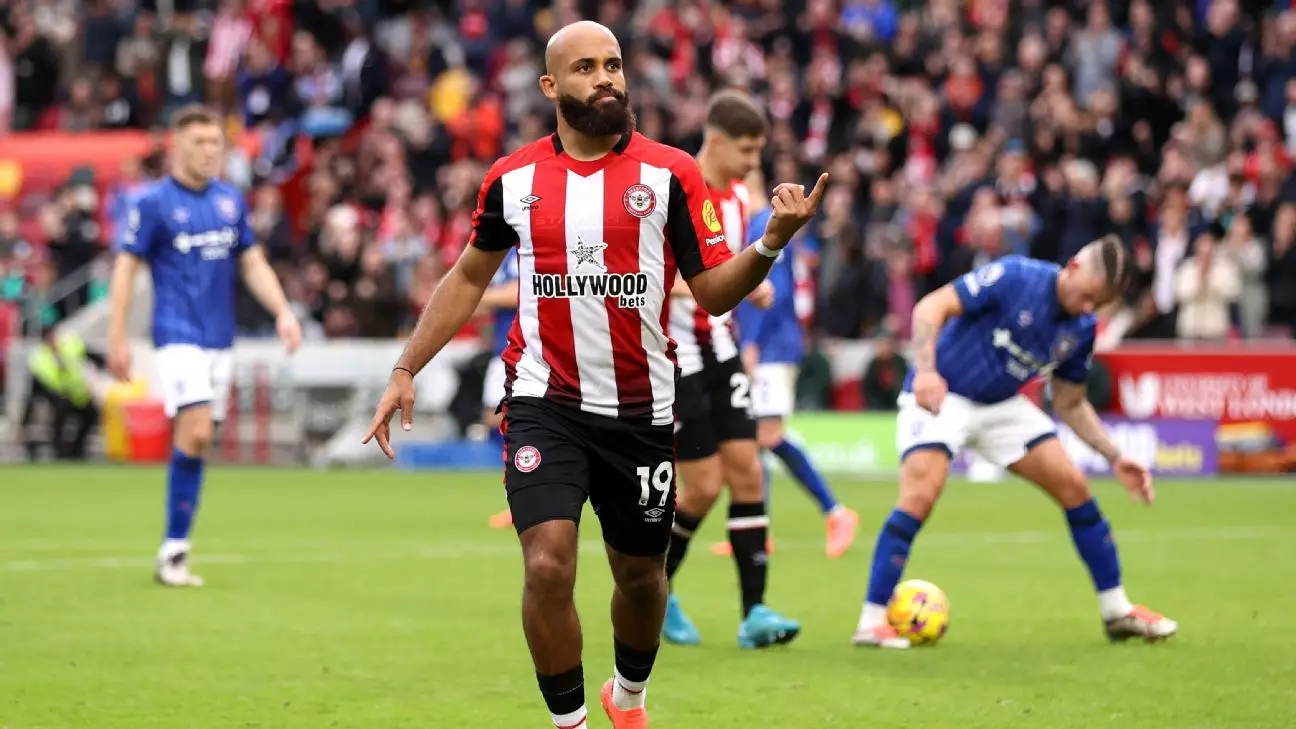Manchester United’s recent transfer activity underscores their unwavering ambition to reclaim their status as Premier League giants. The club’s decision to sign Bryan Mbeumo from Brentford for a fee reportedly exceeding £70 million signals a clear message: United are investing fiercely in future success. Unlike their traditional shrewd approaches, this move demonstrates a willingness to spend big, aiming for a direct impact on their attacking lineup. Mbeumo, aged 25, arrives with a proven goal-scoring record—70 goals and 51 assists over six seasons at Brentford—and an adaptability that matches the club’s evolving tactical needs.
This signing aligns with United’s broader strategy of rebuilding a competitive squad capable of challenging top-tier rivals both domestically and in Europe. Mbeumo’s versatile nature, capable of playing across various forward positions, offers Erik ten Hag flexibility and depth. His arrival suggests a shift from the club’s previous cautious spending towards a more aggressive pursuit of high-caliber talents. As fans eagerly await the start of the preseason tour in the United States, it remains to be seen whether Mbeumo’s debut can serve as a catalyst for a more dynamic, goal-oriented United side.
The Transfer Saga: Negotiation Battles and Strategic Moves
The intensity behind this transfer hunt reveals much about the complex landscape of modern football negotiations. United’s prolonged negotiations with Brentford appear marked by a tug-of-war over valuation. It’s evident that Brentford placed a premium on Mbeumo, valuing him above the £62.5 million paid for Cunha—a clear indication of their belief in his potential and importance to their future plans. The fluctuating valuation, reportedly reaching as high as £77 million with add-ons, underscores how clubs manipulate the perception of value to maximize their bargaining power.
Furthermore, the rivalry for Mbeumo’s signature was intense, with Arsenal and Chelsea positioning themselves as alternative suitors. Brentford even allegedly attempted to leverage this competition, applying pressure to Mbeumo to reject United in favor of other clubs and encouraging him to accept lower personal terms. Such tactics highlight the strategic chess game played out behind closed doors, with clubs seeking to secure their interests at the expense of player and team strategies.
This negotiation complexity also reveals an underlying tension: Brentford’s management seemingly used their valuation and negotiation tactics to extract maximum benefits, possibly at United’s expense. The perception that Brentford intentionally drove the price upward to force a higher wage deal for Mbeumo raises questions about the integrity of the negotiation process. It also exposes how competition among clubs can influence player negotiations, sometimes to the detriment of a fair and transparent transfer process.
Implications for Manchester United and the Premier League
Manchester United’s bold financial commitment to Mbeumo signals a strategic pivot toward a more assertive transfer approach. For too long, United have appeared hesitant, relying on incremental upgrades rather than wholesale reboots. Today, that stance seems to be changing. The club’s willingness to open the purse strings not only aims to boost the squad’s quality but also serves as a message to rival clubs that the Red Devils intend to reignite their pursuit of glory.
Moreover, this transfer move could reshape the competitive landscape of the Premier League. By securing a talented, versatile forward at such a considerable price, United effectively challenge other top clubs aiming for similar quality upgrades. The race for supremacy has become increasingly expensive, and United’s recent activity indicates they’re ready to spend to bridge the gap to longstanding rivals.
The Bryan Mbeumo signing embodies Manchester United’s relentless pursuit of excellence. It’s a statement of intent—a declaration that the club is prepared to make the necessary investments for a resurgence. As the new season approaches, fans and critics alike will watch closely whether this bold gambit translates into tangible success on the pitch, or if it simply adds to the tumultuous saga of modern football’s high-stakes transfer market.

